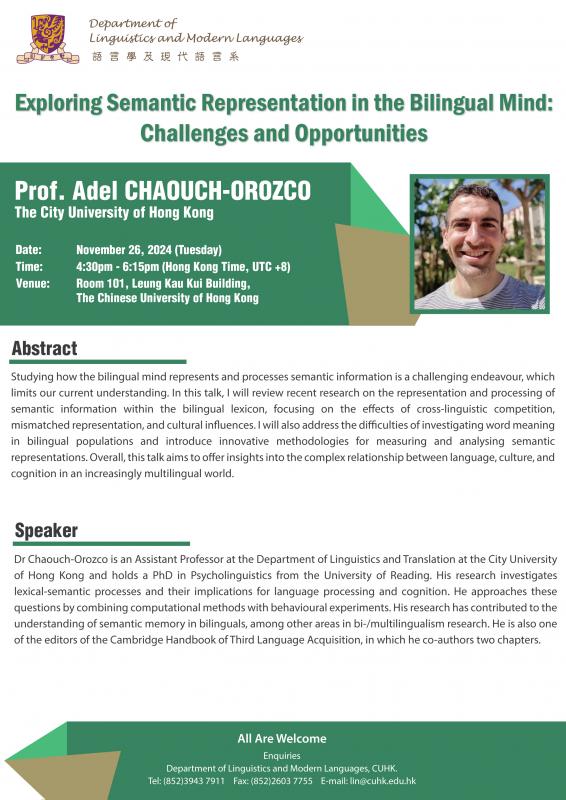
Handwriting is a fundamental skill that plays a pivotal role in communication and academic development. Over the past five years, we have employed neuroimaging techniques, including functional magnetic resonance imaging (fMRI) and electroencephalography (EEG), to investigate the neural mechanisms of Chinese handwriting in both typically developing individuals and those with developmental disorders. In this talk, I will share our recent findings concerning the development and evolution of brain systems involved in Chinese handwriting. Firstly, I will present the findings on how functional brain networks underlie the interaction between linguistic and motor components of Chinese handwriting in both adults and middle-aged children, encompassing motor networks and linguistic-cognitive networks. We found neural evidence supporting the interaction hypothesis in different age groups, shedding new light on the neural foundations of handwriting maturation. Next, I will discuss the evolution of the brain substrates of Chinese handwriting. We conducted cross-species comparisons of the anatomical subregions and functional connectivity of Exner's area, a critical region for handwriting, between humans and macaques. Our findings reveal similar structural parcellation and functional connectivity patterns across species, with slight between-species differences in connectivity strength. Finally, I will discuss the findings concerning the behavioral and electrophysiological correlates of handwriting difficulties in children with comorbid developmental dyslexia and attention-deficit/hyperactivity disorder (ADHD). Additionally, I will introduce digital training programming specifically designed for these children.
Speaker
Professor Yang YANG
Institute of Psychology, Chinese Academy of Sciences
Yang Yang is an associate professor at the Institute of Psychology, Chinese Academy of Sciences. He earned his Ph.D. in 2016 from the University of Hong Kong. His research focuses on the neural mechanisms underlying Chinese reading and writing, as well as the causes and treatments of developmental language disorders, such as dyslexia and stuttering. He has published over 30 peer-reviewed papers in prestigious journals, including Developmental Science, Annals of the New York Academy of Sciences, and Neuroimage. Additionally, he has developed several pieces of software for assessing and training Chinese reading and writing skills. His work has received support from various sources, including grants from China's Science and Technology Innovation 2030—a major project in Brain Science and Brain-Inspired Intelligence Technology and the National Natural Science Foundation of China.
Tel: (852) 3943 7911
Email: lin@cuhk.edu.hk


